Flying Tigers Veterans' Legacy to Propel China-US Cooperation: California Mayors
Flying Tigers veteran Harry Moyer waves to Chinese primary school students at the Museum of the War of the Chinese People's Resistance against Japanese Aggression in Beijing on October 30, 2023. Photo: Li Hao/GTOver the past week, Flying Tigers veterans and their family members received the warmest of welcomes in China.
On the Great Wall, tourists waved at them and took photos with them. At the Museum of the War of the Chinese People's Resistance against Japanese Aggression, local school children lined up to salute and applaud them, while Chinese media closely followed their every move.
In 1941, a group of volunteer US pilots, later known as the Flying Tigers, came to China, standing shoulder to shoulder with the Chinese people to fight invading Japanese troops. They flew over the Himalayas, helping to ship strategic supplies to break through the Japanese blockade.
Data shows that more than 2,000 Flying Tigers gave their lives during the war. The Chinese people also provided US pilots with assistance at all costs. More than 200 pilots in distress were rescued, with thousands of Chinese people giving their lives during the rescue operations.
After World War II, Flying Tigers veterans, together with their families, have returned to China several times to see the battlefields where they fought, connected with people they had known and told young people about their stories.
This time, two made it to China. Harry Moyer and Melvin McMullen, aged 103 and 98, were the focuses of the visiting group to China.
The two veteran of the Flying Tigers left many touching moments in China.
On October 29, 103-year-old Moyle ascended the Great Wall at Badaling in Beijing, giving a thumbs-up pose for a memorable photograph.
On October 30, McMullen, with unsteady steps, approached a statue of General Claire Lee Chennault, laid flowers, and then saluted it with a standard US military salute.
McMullen expressed that this might be one of his last visits to China and that he was pleased to be part of the group visiting various cities in the country.
"I just want to come back," he said.
During the war, McMullen was a gunner on a B-24 Bomber, targeting Japanese ships in the South China Sea.
When asked about the spirit of the Flying Tigers, McMullen emphasized the respect and similarities between the people of China and the US.
"People in China and people in the US speak different languages, but they have the same desires that all people should live in peace," he said.
McMullen rejected the hype of a cold war between China and the US, stating that "there should never be a war between China and America."
Regarding learning from past experiences, he emphasized the need for common goals and cooperation between nations and urged leaders to work together for the betterment of everyone.
Margaret Mills Kincannon, daughter of Flying Tigers pilot James Mills, also the vice chairman of the Sino-American Aviation Heritage Foundation, wrote a book on this special period of history.
"I still can't believe we are here after we've talked about it for so long. That we're finally here in China," she told the Global Times. "China was in my childhood stories."
"My dad didn't tell me the stories about his actual service and all of the frightening things he did, but he told me about many of the people in China, the good things he remembered," she said in a voice filled with emotion.
"There are many good things and I'm discovering those good things now, too."
Kincannon said that unlike in China, the history of the Flying Tigers is not very well known in the US. Moreover, there has been no major film or TV works about it.
"I don't know why nobody was writing about it in America," she said. "That was why I wrote this book."
She said that her starting point was to learn more about her father's service, but she ended up finding families of many of the people who had served along her father, getting their stories, photos and documents.
"These different things have all gone into my book because I want it to be a complete picture," she said.
Her book The Spray and Pray Squadron will be published next spring.
After their visit to Beijing, members of the Flying Tigers and their families also traveled to cities such as Chongqing Municipality, Kunming in Yunnan Province, and Liuzhou in the Guangxi Zhuang Autonomous Region to explore the stories of the Flying Tigers and the history of the joint Chinese-US resistance during World War II.
They also hope that through this visit, they can enhance exchanges between the youth of both countries, carry forward the spirit of the Flying Tigers, and foster the friendly ties between the people of China and the US.
"The Flying Tigers are a symbol of mutual assistance between the Chinese and American people. During their operations to aid China, over 2,000 Flying Tigers members sacrificed their lives, and thousands of Chinese citizens gave their precious lives while assisting endangered aviators," Wang Wenbin, Chinese foreign ministry spokesperson, said at a press conference on Wednesday when asked about the visiting Flying Tigers veterans. "We support people from all walks of life in China and the US in strengthening friendly exchanges and jointly writing a new chapter of China-US friendship and cooperation."
"Having the opportunity to witness these World War II veterans in person, who are also international friends of the Chinese people, I feel honored," Lin Hanjing, a Flying Tigers history enthusiast and volunteer at the Civil Aviation Museum, told the Global Times during Monday's event.
"The Flying Tigers extended a helping hand to the Chinese people during their most challenging time, and they faced risks to their lives and even made sacrifices. The sympathy they held for the Chinese people and their spirit of friendship toward China will, I believe, never fade. We, the Chinese people, should always remember that," Lin noted.
"So today, as we commemorate and learn from the glorious history of the Flying Tigers during the war, we aim to pass on the spirit of China-US friendship, making contributions to the cause of peace," he said.




%20salutes%20to%20the%20camera%20at%20the%20ceremony%20to%20mark%20the%2080th%20anniversary%20of%20US%2014th%20Air.jpeg)





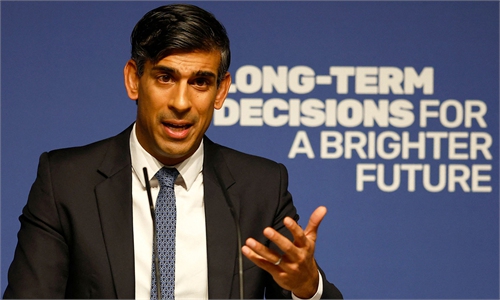



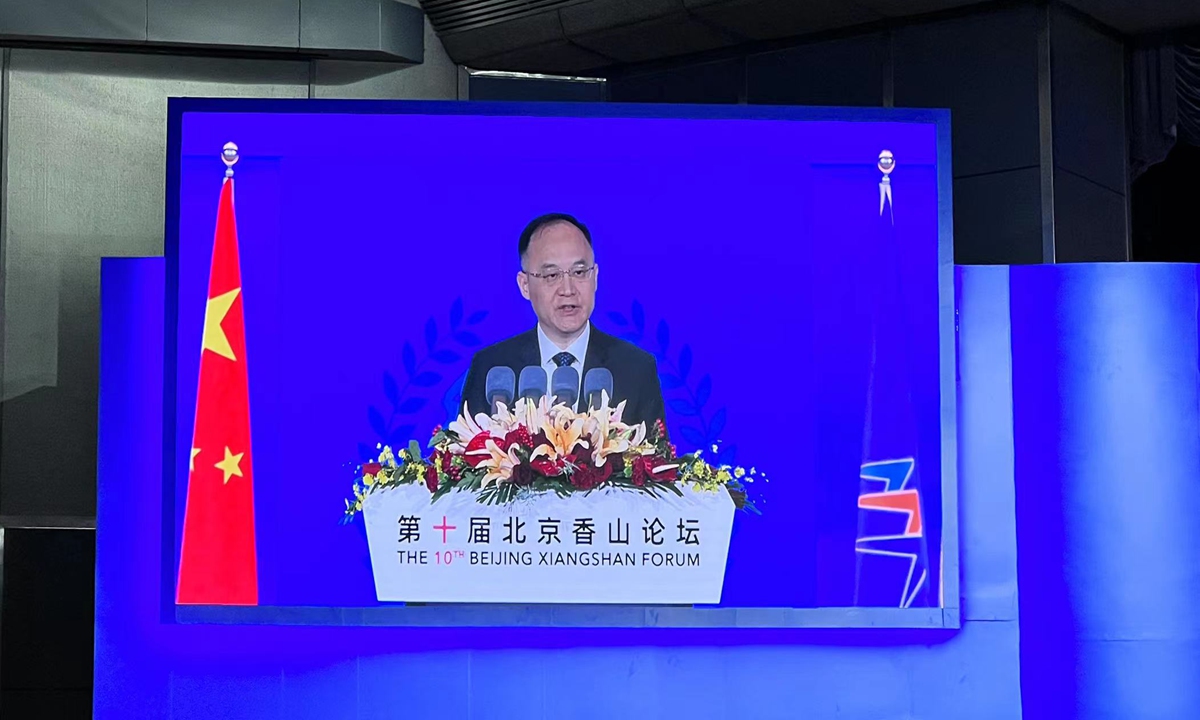
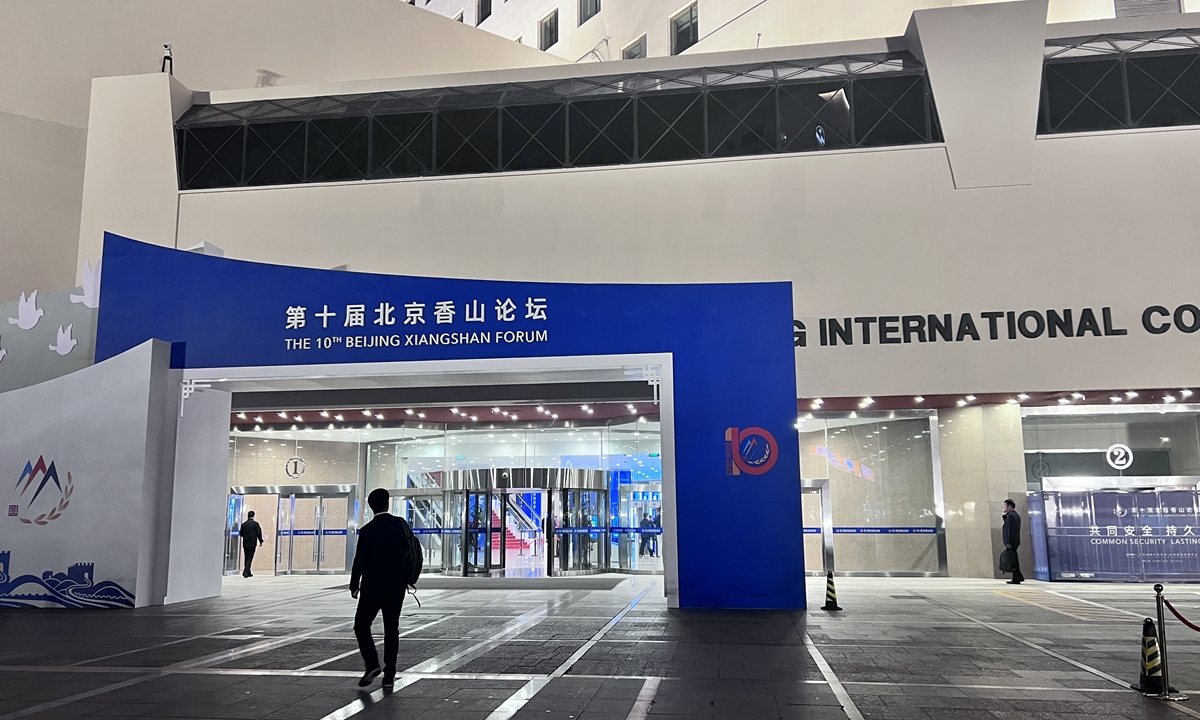
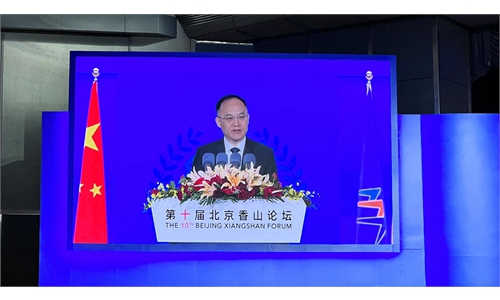
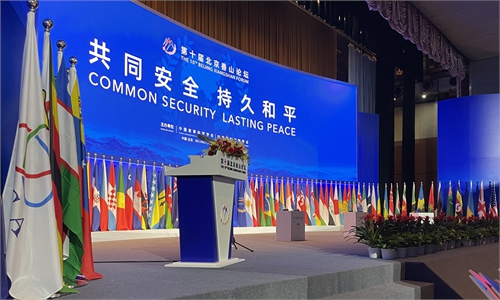
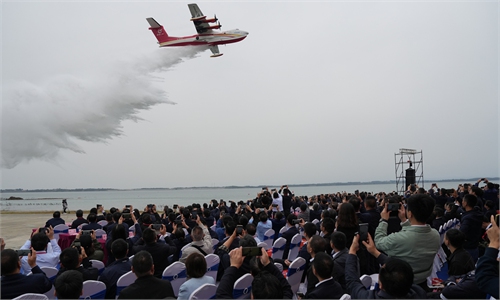
 China recently organized the country's largest comprehensive emergency rescue aviation exercise, demonstrating the systematic achievements in its independent ...
China recently organized the country's largest comprehensive emergency rescue aviation exercise, demonstrating the systematic achievements in its independent ...



